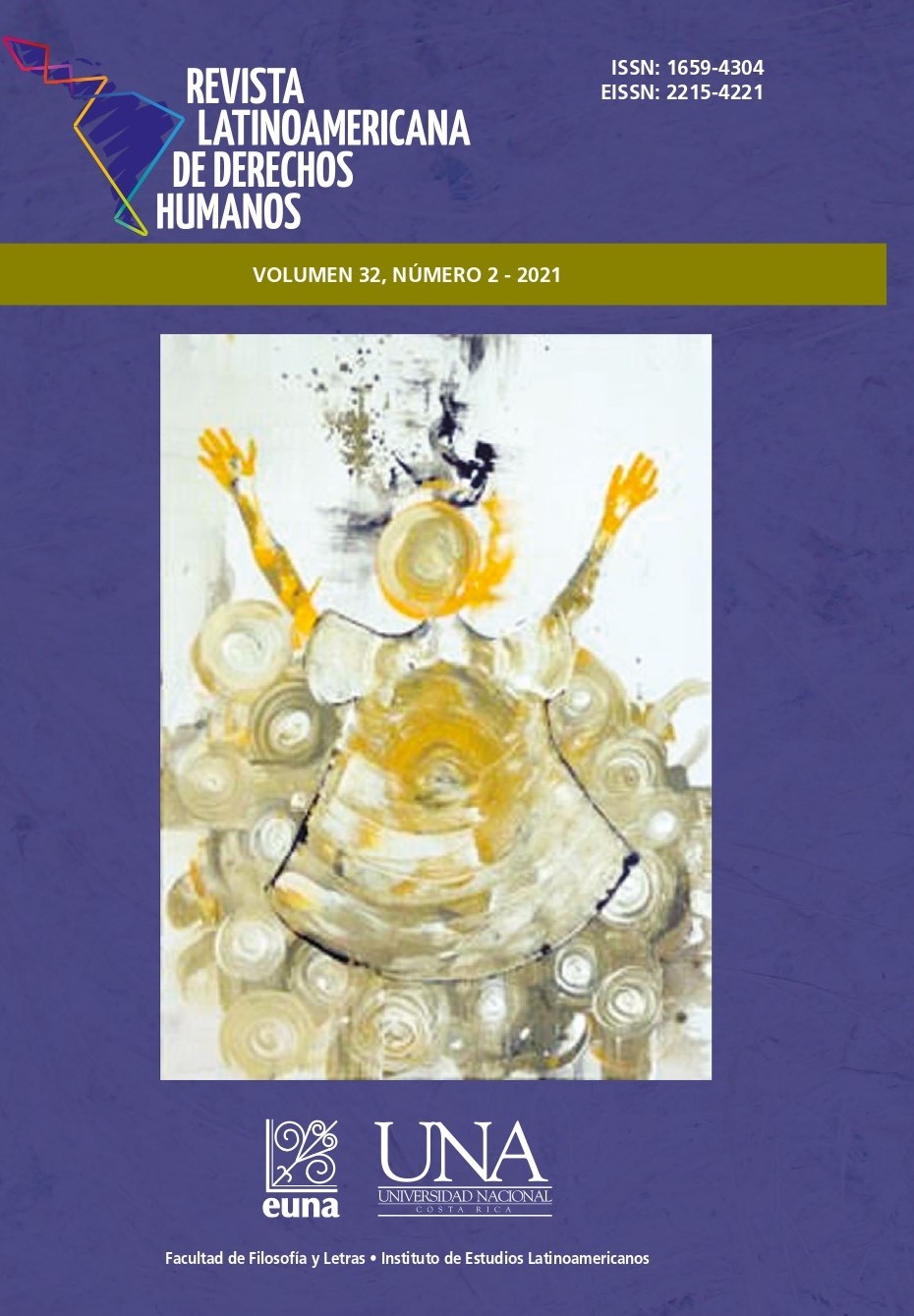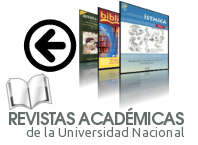The human right to water: a state debt with the panamanian population
DOI:
https://doi.org/10.15359/https://doi.org/10.15359/rldh.32-2.6Keywords:
Panama, Water, Human right to water, Constitutional guarantees, University work.Abstract
Panama is a favored country in terms of water resources; however, it is observed that 10% of the population of the Republic lacks access to drinking water. Based on international instruments and commitments to the Millennium Development Goals and the Sustainable Development Goals of the United Nations, the “human right to drinking water” will be based on the new constitutional reforms derived from university work. The main objective of the present study is to allow legal instruments to reach, through constitutional guarantees, the most vulnerable population. Its application will be through comparative law. Employed methodology was by means of observation and analysis of secondary sources and data. The statistics provided by the Planning Directorate of the National Aqueducts and Sewers Institute (IDAAN) were used. This article is part of the research section of the doctoral thesis “The water footprint; an indicator to apply to the circularity of water: sustainable management model for Panama”. Incorporation of the text on the human right to water in the Political Constitution of the Republic of Panama will pay for the delay that the State has had with the Panamanian population, and the international agreements signed. The criteria analyzed will serve to reflect on the issues of water management and governance; and will allow advances in the matter of human rights to water, it will help advance the emphasis on the recognition of the “human right to water for Panama”.
References
Calvo-Brenes G. (2019). Nuevo índice para valorar la calidad de aguas superficiales en https://doi.org/10.18845/tm.v32i4.4796
Costa Rica. Revista Tecnología en Marcha, 32(4), 104-115. https://doi.org/10.18845/tm.v32i4.4796
https://doi.org/10.18845/tm.v32i4.4796
Castro-Buitrago E, Vélez-Echeveri J, y Madrigal-Pérez M. (2018), El derecho humano al agua en Colombia: Una mirada desde su reconocimiento jurídico en la gestión de cuencas hidrográficas. Revista de Gestión y Ambiente, 21. 195-206. https://doi.org/10.15446/ga.v21n2.73591 https://doi.org/10.15446/ga.v21n2.73591
Conejo L, Chaverri-Chaves P, y León-González S. (2020). Las familias y la pandemia de la
https://doi.org/10.15359/ree.24-S.10
COVID-19. Revista Electrónica Educare, 24(Suplemento Especial), 1-4. https://doi.org/10.15359/ree.24-S.10
https://doi.org/10.15359/ree.24-S.10
Constitución Política de la República de Panamá. (2004). TITULO III-DEBERES Y DERECHOS INDIVIDUALES Y SOCIALES, Capítulo 6°, 7° y 8°, 15 de noviembre de 2004. Texto Único del Reglamento Orgánico del Régimen Interno de la Asamblea Nacional de Diputados. Gaceta Oficial, N.° 25176 https://www.ilo.org/dyn/travail/docs/2083/CONSTITUTION.pdf, p. 113
Delacámara Gonzalo, Diez José, & Lombardo, Francisco. (2019). Seminario Permanente Agua, Territorio y Medio Ambiente, 13, 123-124. Universidad de Jaén, España h,ttps://doi.org/10.17561/at.13.4134
Ferrante, Alfredo. (2016). Entre el derecho comparado y derecho extranjero. Una aproximación a la comparación jurídica. Revista Chilena de Derecho, 43(2), 601-618. http://dx.doi.org/10.4067/S0718-34372016000200010
https://doi.org/10.4067/S0718-34372016000200010
Hatch G., & Costa W. (2020). Gestión del agua y relaciones de poder en América Latina. Revista Agua y Territorio, 15, 11-12. Universidad de Jaén, España. https://doi.org/10.17561/at.15.5492 https://doi.org/10.17561/at.15.5492
Ibañez O., y Lazo J. (2018). El derecho humano al agua para excluidos en los municipios de Júarez y Guachochi, Chihuahua. Tecnología y Ciencias del Agua, 9(4), 75-109. https://doi.org/10.24850/j-tyca-2018-04-04
https://doi.org/10.24850/j-tyca-2018-04-04
García T., & Carazo E. (2020). Ambigüedad institucional y normativa en la gestión y
garantía del derecho humano al agua en Costa Rica: ¿Agua para quién? Revista Agua y Territorio, 15. 13-20. Universidad de Jaén, España. https://doi.org/10.17561/at.15.4646
https://doi.org/10.17561/at.15.4646
Martínez, A. (2017). El agua y los retos del siglo XXI. Revista Aquae Papers, 7, 1-88. Aquae Fundación, Universidad Autónoma de Barcelona, España.
Mellado, L. (2019, enero-abril). El derecho humano al agua como mínimo vital en Andalucía. Revista Andaluza de Administración Pública, 103, 101-143, Universidad de Almería. https://doi.org/10.46735/raap.n103.1075
Mussette P. (2009). Participación y gobernanza. El modelo de gobierno del agua en México. Revista Espacios Públicos, 12(25), 66-84. Universidad Autónoma del Estado de México.
Naciones Unidas. (28 de julio de 2010). Resolución aprobada por la Asamblea General A/RES/64/292 por lo cual se establece el derecho humano al agua y el saneamiento. naciones unidas y derecho al agua.pdf
Urquhart, S., & Mezquita D. (2014, enero-junio). El agua como un derecho fundamental y derecho al agua potable como un derecho humano fundamental: Una propuesta teórica de políticas públicas. Revista Jurídica, 11, 117-137. Manizales, Colombia.
Sáenz-López J., Rodríguez M. y García J. (2020). Predictores de mortalidad en pacientes con COVID-19. Archivos de Medicina, 16(26),1-3. 10.3823/1429
Sánchez, Álvaro. (2014). Injusticia ambiental y derecho humano del agua. Revista Thesis Juris, 3(2), 151-156. Sáo Pablo, Brasil. 10.5585/rtj.v3i2.186
Recabarren, O. (2016). El estándar del derecho de aguas desde la perspectiva del derecho internacional de los derechos humanos y del medio ambiente. Estudios Constitucionales, 14(2), 305-346.
Rocha, I., Ferreira L., y De Oliveira J. (2018). El agua como un bien social público: Los procedimientos de privatización frente al abastecimiento en Pau Dos Ferros-RN. Revista GEOSUL, 33(68), 58-82. Florianópolis, Brasil. 10.5007 / 2177-5230.2018v33n68p58
Published
How to Cite
Issue
Section
License
El material que se publica en esta Revista está bajo una licencia “Creative Commons” 3.0 Costa Rica (CC, Reconocimiento-NoComercial-SinObraDerivada 3.0 Costa Rica (CC BY-NC-ND 3.0 CR) . Esto significa que el material publicado en la revista se puede compartir (copiar y distribuir) en cualquier medio o formato considerando que se debe reconocer de forma adecuada la autoría del material y la fuente, no puede utilizarse con fines comerciales y no se aceptan las obras derivadas (remezclar, transformar o crear a partir del material).








